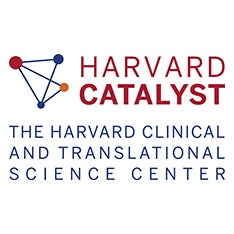The Harvard Catalyst Biostatistics Program had an eventful year.
had an eventful year.
The Program saw many successes in 2022, in spite of the continued challenges that we face due to COVID-19. Our biostatistician and bioinformatician consultants once again provided over 1,000 consultations. Investigators across Harvard and Harvard-affiliated hospitals were helped on various issues, ranging from designing a study or a clinical trial, to receiving advice on specific analytic techniques or the interpretation of results, or simply exploring the feasibility of a pilot study, to name a few.
During the year, we offered a variety of continuing education opportunities for the Harvard community at our Short Courses and engaged students, postdoctoral trainees, faculty and researchers in stimulating discussions at our Journal Club meetings. In April we held our annual (virtual) Harvard Catalyst Biostatistics Symposium entitled “Translational Biostatistics – Bridging the Gap Between Complex Statistical Analyses and Clinically Actionable Information”. The symposium focused on efforts to overcome translational barriers between statistical analyses of clinical studies and results that can be readily comprehended by clinicians and patients. A panel of distinguished speakers described a number of opportunities for closing the gap and enhancing translation. We are now in the planning stages for another symposium on “Data Science and Health Disparities”, tentatively scheduled for March 24, 2023; further details and registration information will be available early in the New Year.
As we welcome in 2023, we invite you to stay in contact and hope to see you at our future events. If you’re not already on our mailing list, we invite you to join by sending a note to our Program Manager, Jocelyn Kasper, at CatalystBiostats@catalyst.harvard.edu.
Best wishes and happy holidays from all of us at the Harvard Catalyst Biostatistics Program!
Garrett Fitzmaurice and Jocelyn Kasper



